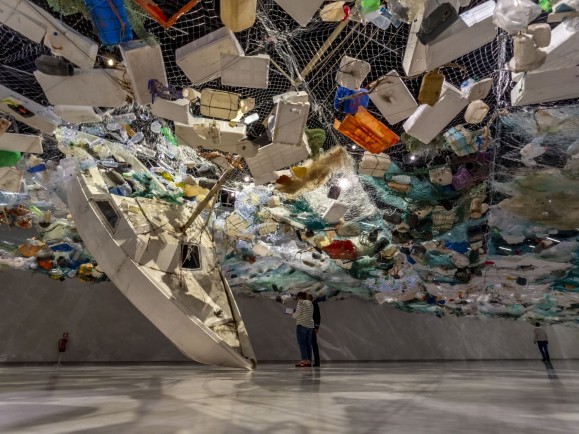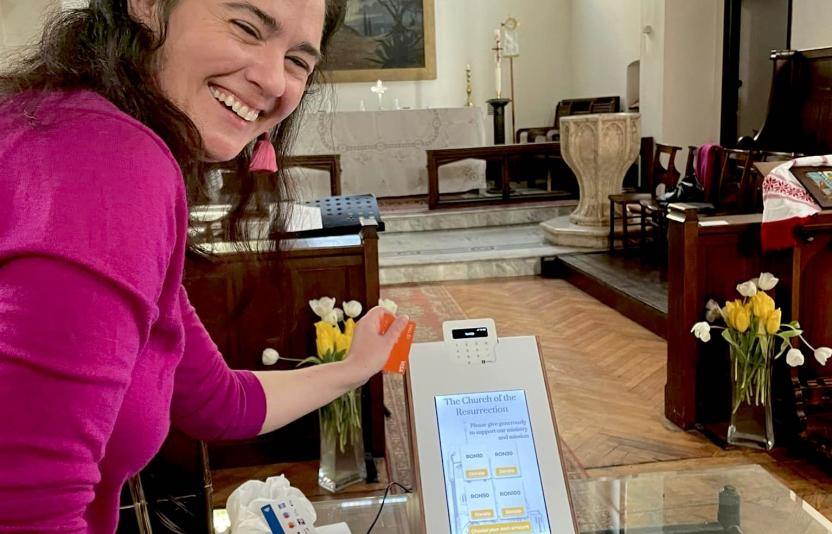Reducing Plastic Waste
We are grateful to Chris Wells (Algarve, Portugal) and friends for this report on an event on how to reduce our plastic waste, with plenty of ideas as we head into Lent.

We all know that there is a problem with plastic waste and will have been moved by the many photos of wildlife in distress: but what can we do about it?
The conference was organised by Chris Wells and produced by The Revd Rob Kean. The Revd Dave Bookless and The Revd Elizabeth Bussmann also contributed to the event. We had talks from the experts and lively discussion and questions, chaired by our Archdeacon David Waller. Between sessions, we were entertained by Steve Andrews (the Bard of Ely) and our own Father Reid.
We gained a greater knowledge of the devasting damage that plastic can do to our environment worldwide and how the ‘three Rs’ of waste management should be incorporated into our daily lives: REDUCE what we consume, RE-USE what we already have, RECYCLE so that the article can be transformed to a raw material. An interesting and frightening statistic: humans have made 8.3bn tons of plastic since 1950.
Dave and Elizabeth both told us that although the task seems enormous and daunting, not to fret! Nobody gets everything right all of the time – all we can do is our best and, in turn, our bit.
There was interest from across the Diocese in Europe and from the UK, with many churches represented plus representatives from other churches in the Algarve. In total 117 devices were logged on so with several couples around 150 people participated. Everyone went back to their churches enthused and armed with ideas!
For those who missed the conference, a video recording is in the making. In the meantime do check out these links:
- A Rocha, Plastic Toolbox: Education, Science, Theology, Lifestyle, Media
- A Rocha- Plastic Free February
- Film, A Plastic Ocean - Netflix
- Plastic oceans by Craig Leeson TEDx talk 2018
- David Attenborough, - A life on our Planet (film, details on Wiki)
More coverage, resources and ideas will be added to the Eco-Diocese section on the Diocesan website (under development).
Plastic Free February
A Rocha has been running a Plastic Free February project. Its purpose is to reduce the amount of plastics we use. We will do this, as much as we are able, by monitoring and reducing our personal use of plastic at home. We know it will be a difficult task but we are hoping that everyone can share, not only the difficulties you faced but also the solutions and tips you found both practical and feasible.
Some of you have written in with ideas – please keep them coming!
- Use re-usable silicone lids for covering bowls in the fridge instead of clingfilm. Silicon is a plastic but can be used again and again. See link for further info on silicon Is Silicone Biodegradable? What You Should Know. (ecogradable.com)
- Use washable fabric covers to cover bowls. You could even make your own: cut circles of leftover fabric/old sheeting, make a hem around the edge and insert elastic. If sewing is not your thing keep the fabric in place with an elastic band.
- No products with microbeads. Look around your bathroom and see what you can replace with non-plastic products.
- Glass or reusable plastic containers for the fridge rather than freezer bags.
- Taking non-plastic bags to the supermarket for fruit and vegetables.
- Expressing appreciation to local shops when they provide paper bags which are strong enough to be a viable substitute for plastic bags.
- Reusing old onion nets to save loose produce rolling around the trolley.
- Using beeswax wraps or a saucer/casserole lid etc rather than clingfilm in the fridge.
- Checking the containers used for toiletries and domestic products and trying to avoid those which will not recycle.
- Patronising shops where fruit, veg, fish and meat are not shrink-wrapped.
- Buy loose tea instead of teabags. Did know that some teabags contain plastic fibres? It’s important to point out that plastic-free and biodegradable aren’t the same thing. Sometimes tea bags are labelled as biodegradable even when they contain small amounts of plastic, as EU law allows products to be classed as biodegradable as long as the plastic content doesn’t exceed a certain limit. For a list of plastic-free teabags see Plastic-Free Tea Bags in the UK - Naturaler.
- If you’re a gardener use plastic butter containers, yoghurt pots, etc. to plant seeds/seedlings
- Buy larger sizes of bathroom and kitchen liquids
- Hotel toiletry packs often include a shower cap. These can be reused as bowl covers in the fridge
- Use a razor with a disposable blade rather than a disposable razor
- Buy grocery items, e.g. sugar, rice, flour, etc. wrapped in paper bags rather than plastic bags
- Food for thought - could you be eating your fleece sweater!! Yoga pants, fleece jackets and the microplastics dilemma (Greenbiz).


